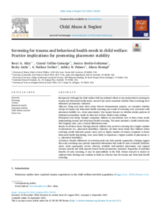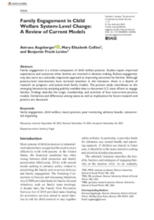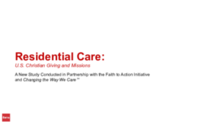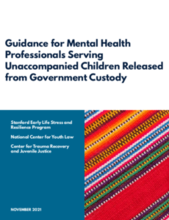Displaying 261 - 270 of 2221
Findings of this report suggest that early screenings for trauma and behavioral health needs may provide important information that could be used to identify children's needs, make appropriate service referrals, establish well-matched placements, and support resource parents and birth parents toward better permanency outcomes.
Family engagement is a critical component of child welfare practice. The present study analyzes publicly available data to document U.S. state efforts to engage families.
Right now hundreds of kids in foster care across Texas who don't have a safe placement are sleeping in offices, hotels, churches and other donated spaces. Social workers, case managers and other employees from the DFPS are being asked to take on child watch shifts to care for them.
Some 24,000 teenagers in foster care across the nation officially become adults each year; in Nebraska it happens on their 19th birthday. They are expected to move out and start their lives on their own, yet many do not have a reliable support system. They face many challenges, including finding a job and a place to live.
Under the Family First Prevention Services Act, a law passed by Congress that took effect in New York in late September, federal funding for congregate care has been dramatically reduced.
This report contains the findings from a nationally representative study conducted by Barna Group of U.S. Christians to better understand U.S. Christian beliefs around and support for orphanages, children’s homes and other forms of residential care for children. It includes data on the amount of funding given to residential care, as well as visits and short-term missions to orphanages.
Providing effective mental health services to unaccompanied children released from federal immigration custody is both critically important and incredibly challenging. Developed by children’s rights attorneys and mental health experts on trauma and immigration, this Guide is grounded in the voices and experiences of unaccompanied children.
Public Hearing: Inter-American Commission on Human Rights
Date: October 22
Time: 4:00 pm EDT
In just a few years, a Michigan woman took in millions of dollars, faking adoptions and ruining families’ lives along the way.
When youths get close to aging out of foster care, it’s important to plan for emancipation. Aging out of foster care — or emancipating — is the termination of court jurisdiction over youths formally in foster care.




